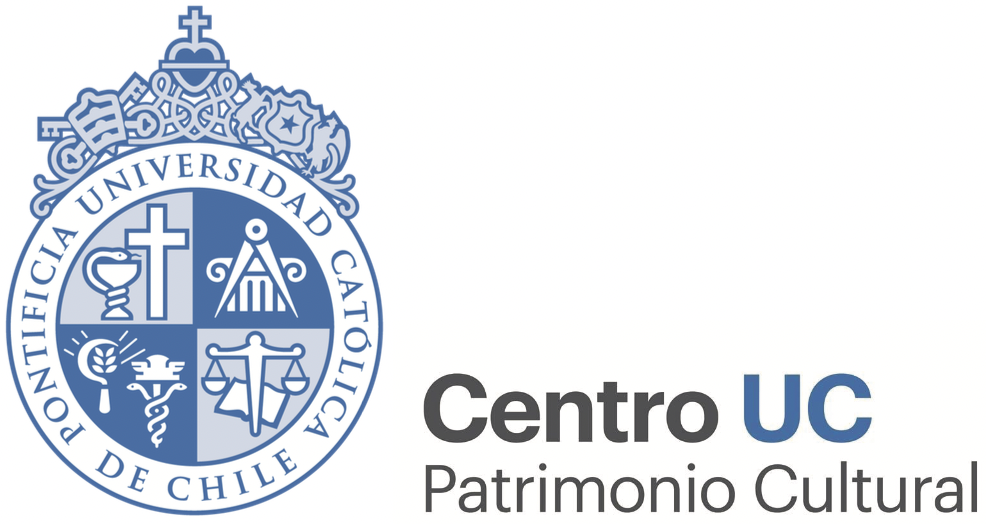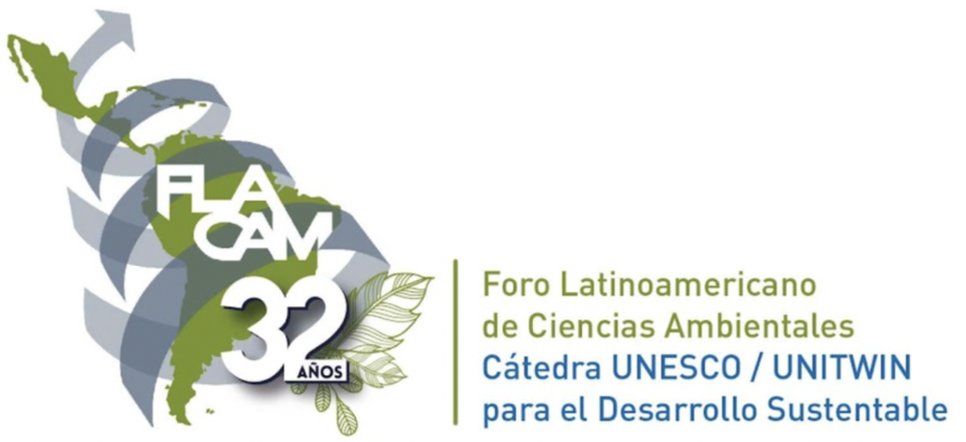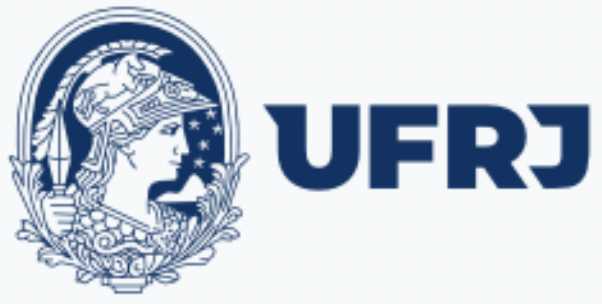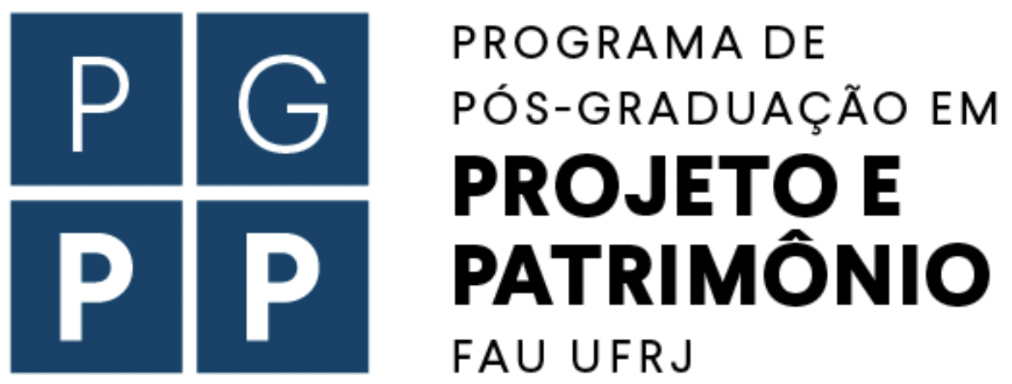The event will be in Spanish, but will have simultaneous Spanish-English-Spanish interpretation available.
In 2021, the OurWorldHeritage Foundation organized #2021debate, a year long webinar series of 134 events and lively discussions on 12 heritage related themes (one per month). OWH #2021debate engaged thousands of people to highlight heritage issues, including success stories as well as failures, in order to identify new opportunities and future challenges, with a comunity centered approach. The outcome of these debate has also defined three vectors for future OurWorldHeritage action (CAP): Co-learning, civil society Advocay and advancing Practice.
We are organizing this globinar to bring together local communities and practitioners to learn from each others practical experiences and actions that come with the conservation and management of natural and cultural heritage.
GLOBINAR SESSION 3 focussed in the American regions, and will address the challenges of sustainability, new approaches to future heritage, and the role of civil society.
We will share the results of the debates held in 2021 by the teams on Disaster and Pandemic, led by the Cultural Heritage Center of the Pontifical Catholic University of Chile; Sustainability, led by FLACAM-UNESCO Chair and the Technical University of Munich, and New Approaches to Heritage, led by the Federal University of Rio de Janeiro and the University of Bologna.
We aim to reflect, together with a panel of special guests, on some key challenges in Latin America and the Caribbean, such as interculturality, decolonization, gender issues and community empowerment, and heritage governance, peace agreements, innovation, and the role of the youth.
This event is a joint initiative of OurWorldHeritage and Centro del Patrimonio Cultural de la Pontificia Universidad Católica de Chile (Chile), FLACAM (Foro Latinoamericano de Ciencias Ambientales-Cátedra UNESCO, Argentina) and Universidad Federal de Río de Janeiro (Brazil) and TU München (Germany).
El evento será en español, pero tendrá interpretación simultánea español-inglés-español disponible.
En 2021, la Fundación OurWorldHeritage organizó #2021debate, una serie de seminarios web de un año de duración con 134 eventos y animados debates sobre 12 temas relacionados con el patrimonio (uno por mes). El debate OWH #2021 involucró a miles de personas para resaltar los problemas del patrimonio, incluidas las historias de éxito y los fracasos, a fin de identificar nuevas oportunidades y desafíos futuros, con un enfoque centrado en la comunidad. El resultado de este debate también ha definido tres vectores para la futura acción de OurWorldHeritage (PAC): aprendizaje conjunto, promoción de la sociedad civil y práctica avanzada.
Estamos organizando este globinar para reunir a las comunidades locales y los profesionales para aprender, de unos y otros, experiencias prácticas y acciones de conservación y gestión del patrimonio natural y cultural.
LA SESIÓN 3 DEL GLOBINAR, centrada en la región de América, abordará el desafío de la sustentabilidad, los nuevos enfoques sobre el patrimonio futuro y el papel de la sociedad civil.
Compartiremos los resultados de los debates realizados en 2021 por los equipos de Desastres y Pandemias, liderado por el Centro de Patrimonio Cultural de la Pontificia Universidad Católica de Chile; Sustentabilidad, liderado por FLACAM-Cátedra UNESCO Unitwin y la Universidad Técnica de Múnich, y Nuevos Enfoques del Patrimonio, liderado por la Universidad Federal de Río de Janeiro y la Universidad de Bolonia.
Y reflexionaremos, junto a un panel de invitados especiales, sobre algunos desafíos clave en América Latina y el Caribe, como: interculturalidad, descolonización, género y empoderamiento comunitario, gobernanza patrimonial, acuerdos de paz, innovación y el papel de la juventud.
Este evento es una iniciativa conjunta de OurWorldHeritage y el Centro del Patrimonio Cultural de la Pontificia Universidad Católica de Chile (Chile), FLACAM (Foro Latinoamericano de Ciencias Ambientales-Cátedra UNESCO Red Unitwin, Argentina), la Universidad Federal de Río de Janeiro (Brasil) y TU München (Alemania).
PROGRAM
Welcome and Introduction / Bienvenida
e introducción
Francesco Bandarin, Architect, Assistant Director General of UNESCO for Culture (2010-2018)
Video screening OurWorldHeritage #2021debate
Video screening OurWorldHeritage Americas
#2021debate synthesis / #2021debate síntesis
Umberto Bonomo, team Disasters & Pandemics
Equipo #2021debate Disasters & Pandemics
Lucia Pesci & Pamela Durán, team Sustainability
Equipo #2021debate Sustainability
Mónica Bahía Schlee, team New Heritage Approaches
Equipo #2021debate New Heritage Approaches
Roundtable and video screening / Mesa redonda
See all video submissions / Ver todos los videos enviados
Miguel Laborde
Hybridization/Interculturality (Chile)
Hibridación/ Interculturalidad
Melissa Schumacher
Gender. Empowerment. Protection Policies (Argentina)
Género. Empoderamiento. Políticas de Protección.
Monica Lacarrieu
Decolonization (México)
Descolonización
Leonardo Castriota
Heritage governance, peace agreements, and youth innovation (Brasil)
Gobernanza del patrimonio Acuerdos de paz Innovación Juventud
Video screening
Kate Lampton
Charlotte Land Trust, Vermont (United States)
Video screening
Parks Canada (narrator John Zvonar)
Central experimental farm Ottawa (Canada)
Video screening
St John’s Basilica (Canada)
Conclusion & looking ahead / Mirando hacia el futuro
Umberto Bonomo
Launch of OWH Latin America
Lanzamiento de OWH Latinoamérica
Mónica Lacarrieu, Dra. en antropología social (UBA). Investigadora Principal CONICET. Profesora Titular UBA. Directora del Programa Antropología de la Cultura (Instituto de Ciencias Antropológicas, UBA). Directora de la Carrera de Especialización de Gestión Cultural, Univ. de Córdoba. Directora del Proyecto "Patrimonio histórico y públicos en la Manzana de las Luces" (Secretaría de Patrimonio, Ministerio de Cultura-CONICET). Directora de Proyectos UBA, Conicet y Agencia de Ciencia y Tecnología. Formadora del Programa de Capacitación Global del Patrimonio Inmaterial, UNESCO. Asesorías en legislación y salvaguarda del Patrimonio Cultural Inmaterial (Cámara de Diputados de la Nación, Dirección de Patrimonio del Chaco, Dirección de Patrimonio de la Provincia de Buenos Aires, entre otros). Fue Directora Académica del Instituto de Cultura Pública hasta 2015 (Ministerio de Cultura de la Nación) y Comisionada-Vicerrectora de Investigación y Posgrado en la Universidad de las Artes, Guayaquil, Ecuador (hasta 2018). Fue Directora de la Maestría en Cultura Pública, Universidad Nacional de las Artes (hasta 2021). Ha publicado artículos en revistas nacionales e internacionales, capítulos de libro y libros sobre las temáticas de cultura, patrimonio y ciudades.
Mónica Lacarrieu, PhD in Social Anthropology (UBA). Principal Researcher CONICET. Full Professor UBA. Director of the Anthropology of Culture Program (Institute of Anthropological Sciences, UBA). Director of the Cultural Management Specialization Program, Univ. of Córdoba. Director of the Project "Historical Heritage and Publics in the Manzana de las Luces" (Secretariat of Heritage, Ministry of Culture-CONICET). Project Director, UBA, Conicet and Science and Technology Agency. Trainer of the Intangible Heritage Global Training Program, UNESCO. Advisor on legislation and safeguarding of Intangible Cultural Heritage (Chamber of Deputies of the Nation, Directorate of Heritage of Chaco, Directorate of Heritage of the Province of Buenos Aires, among others). She was Academic Director of the Institute of Public Culture until 2015 (National Ministry of Culture) and Commissioner-Vice Chancellor of Research and Graduate Studies at the University of the Arts, Guayaquil, Ecuador (until 2018). She was Director of the Master in Public Culture, Universidad Nacional de las Artes (until 2021). She has published articles in national and international journals, book chapters and books on the topics of culture, heritage and cities.
Melissa Schumacher es Doctora en Ingeniería con especialidad en Gestión Territorial por la Universidad Técnica de Múnich. Maestra en Urbanismo por la Universidad Politécnica de Cataluña y Licenciada en Arquitectura por la Universidad de las Américas Puebla. Su trabajo ha sido publicado en Latinoamérica y Europa. Es miembro fundador del grupo de trabajo inLAB: territorio y artefacto urbano donde ha desarrollado workshops multidisciplinarios de planeación urbana y talleres comunitarios. Paralelamente participa en la creación del taller colaborativo Tlalli Amealco y es miembro de AURA Red Latinoamericana de Agricultura Urbana. Su trabajo se centra en ordenamiento territorial, desarrollo regenerativo, ruralismo y diseño social. Fue becaria Conacyt-DAAD y ha trabajado con la cooperación alemana a través del financiamiento de proyectos con el Año Dual Alemania México, el DAAD y el Ministerio de Educación e Investigación de Alemania BMBF. Forma parte del Sistema Nacional de Investigadores (SNI) nivel candidato. A través de la docencia, educa a nuevas generaciones de arquitectos para que se comprometan con su país y comunidad. Se considera una arquitecta “descalza” que disfruta llevar el aprendizaje fuera de las aulas y en contacto con la tierra. Desde 2016 es profesora de tiempo completo en el Departamento Académico de Arquitectura de la Escuela de Artes y Humanidades de la Universidad de las Américas Puebla.
Melissa Schumacher holds a PhD in Engineering with a specialization in Land Management from the Technical University of Munich. She holds a Master in Urban Planning from the Polytechnic University of Catalonia and a Bachelor in Architecture from the University of the Americas Puebla. Her work has been published in Latin America and Europe. She is a founding member of the working group inLAB: territory and urban artifact where she has developed multidisciplinary urban planning workshops and community workshops. At the same time he participates in the creation of the collaborative workshop Tlalli Amealco and is a member of AURA Latin American Network of Urban Agriculture. Her work focuses on land use planning, regenerative development, ruralism and social design. She was a Conacyt-DAAD fellow and has worked with German cooperation through the financing of projects with the Dual Year Germany Mexico, the DAAD and the German Ministry of Education and Research BMBF. She is part of the National System of Researchers (SNI) candidate level. Through teaching, she educates new generations of architects to engage with their country and community. She considers herself a "barefoot" architect who enjoys taking learning outside the classroom and in contact with the land. Since 2016 she has been a full-time professor in the Academic Department of Architecture at the School of Arts and Humanities at the Universidad de las Américas Puebla.
Leonardo Castriota, profesor de la Universidad Federal de Minas Gerais y subcoordinador de la Maestría Interdisciplinaria en Medio Ambiente Construido y Patrimonio Sostenible. Cargos anteriores incluyen: Presidente ICOMOS-BRASIL; Vicepresidente ICOMOS Internacional; Investigador de la Fundación Rockefeller y del Instituto de Conservación Getty; Dirección de Patrimonio Cultural del Municipio de Belo Horizonte; Presidente del Instituto de Arquitectos del Departamento Brasileño de Minas Gerais; Director de la Escuela de Arquitectura de la Universidad Federal de Minas Gerais.
Leonardo Castriota, professor at the Federal University of Minas Gerais and subcoordinator of the Interdisciplinary Master's Degree in Built Environment and Sustainable Heritage. Previous positions include: President ICOMOS-BRAZIL; Vice President ICOMOS International; Researcher for the Rockefeller Foundation and the Getty Conservation Institute; Director of Cultural Heritage of the Municipality of Belo Horizonte; President of the Institute of Architects of the Brazilian Department of Minas Gerais; Director of the School of Architecture of the Federal University of Minas Gerais.
Miguel Laborde, escritor y columnista, autor de 8 libros de temas patrimoniales, es director de la Revista Universitaria UC y profesor de historia urbana en la Universidad Diego Portales. Miembro honorario del Colegio de Arquitectos, ha sido reconocido con el Premio Municipal de Santiago en Gestión del Patrimonio Cultural 2018 y con la Orden de Pedro de Valdivia por su "rescate y resguardo del patrimonio chileno", el mismo año 2018.
Miguel Laborde, writer and columnist, author of 8 books on heritage issues, is director of the Revista Universitaria UC and professor of urban history at the Universidad Diego Portales. Honorary member of the College of Architects, he has been recognized with the Municipal Prize of Santiago in Cultural Heritage Management 2018 and with the Order of Pedro de Valdivia for his "rescue and safeguarding of Chilean heritage", the same year 2018.
Pamela Durán Díaz es arquitecta (Tec de Monterrey) con un doctorado en Urbanismo (UPC, Barcelona), un postdoctorado en Gestión Sostenible de Paisajes Culturales Extremos en China, Mali y México; y un segundo postdoctorado en Fortalecimiento de Capacidades para la Gobernanza de la Tierra en África. Es investigadora científica del Departamento de Gestión Territorial de la Universidad Técnica de Múnich y coordinadora de los programas de Doctorado y Maestría en Gestión Territorial y Ciencias Geoespaciales. Como directora de proyecto de ADLAND "Advancing Collaborative Research in Responsible and Smart Land Management in and for Africa", un proyecto de investigación financiado por la GIZ, gestionó un consorcio de 6 universidades europeas y australianas asociadas en colaboración con NELGA, la red de excelencia en gobernanza de la tierra en África, con más de 70 instituciones asociadas en toda África. Es asesora científica de TU eMpower Africa e.V., una organización sin fines de lucro afiliada a la Universidad Técnica de Múnich para la implementación de sistemas sostenibles de energía, agua y alimentos en Ruanda, Zimbabue y Ghana sobre energía renovable, consolidación territorial y seguridad alimentaria. Es miembro del grupo de investigación Centre of Land, Water and Environmental Risk Management, miembro de Nexus@TUM Lab y miembro del grupo comunitario Women of TUM. Es Presidenta del Capítulo Bavaria de la Red Global de Mexicanos Altamente Cualificados en el Exterior (RGMX). Además, es co-convocante del Equipo de Sostenibilidad de la Fundación Our World Heritage para promover cambios de política para el patrimonio construido e intangible a través de actividades participativas de investigación y concientización. Es catedrática invitada en la Cátedra UNESCO FLACAM “Foro Latinoamericano de Ciencias Ambientales” (Argentina) y miembro del Consejo Revisor de las revistas científicas MDPI Land, Sustainability, Hydrology and Remote Sensing. Lidera proyectos de investigación que utilizan herramientas de planificación urbana y gestión del territorio para generar estrategias de intervención, en las que los entornos naturales y construidos son tan importantes como el patrimonio construido e inmaterial; por lo tanto, la cultura local actúa como un catalizador para el desarrollo. PhD. Arch.
Pamela Durán Díaz is an architect (Tec de Monterrey) with a PhD in Urban Planning (UPC, Barcelona), a postdoc in Sustainable Management of Extreme Cultural Landscapes in China, Mali and Mexico; and a second postdoc in Capacity Building for Land Governance in Africa. She is a research scientist at the Department of Territorial Management of the Technical University of Munich and coordinator of the PhD and MSc programs in Territorial Management and Geospatial Sciences. As project manager of ADLAND "Advancing Collaborative Research in Responsible and Smart Land Management in and for Africa", a GIZ-funded research project, she managed a consortium of 6 European and Australian partner universities in collaboration with NELGA, the network of excellence in land governance in Africa, with more than 70 partner institutions across Africa. She is scientific advisor to TU eMpower Africa e.V., a non-profit organization affiliated to the Technical University of Munich for the implementation of sustainable energy, water and food systems in Rwanda, Zimbabwe and Ghana on renewable energy, land consolidation and food security. She is a member of the Centre of Land, Water and Environmental Risk Management research group, a member of Nexus@TUM Lab and a member of the Women of TUM community group. She is President of the Bavaria Chapter of the Global Network of Highly Qualified Mexicans Abroad (RGMX). In addition, she is co-convener of the Sustainability Team of Our World Heritage Foundation to promote policy changes for built and intangible heritage through participatory research and awareness activities. She is a visiting professor at the UNESCO FLACAM Chair "Foro Latinoamericano de Ciencias Ambientales" (Argentina) and member of the Review Board of the scientific journals MDPI Land, Sustainability, Hydrology and Remote Sensing. She leads research projects that use urban planning and land management tools to generate intervention strategies, in which natural and built environments are as important as built and intangible heritage; therefore, local culture acts as a catalyst for development.
Lucía PESCI es Profesora (1994) y Licenciada (1996) en Geografía (Universidad Nacional de La Plata, Argentina). Doctorando en Urbanismo (UPC-España). Maestrando en Desarrollo Sustentable (Universidad Nacional de Lanús-FLACAM) (Tesis entregada). Presidente de la Fundación CEPA (Centros de Estudios y Proyectos del Ambiente) y Directora Consultora CEPA S.A. Vicepresidenta Ejecutiva y Coordinadora Académica de FLACAM / Foro Latinoamericano de Ciencias Ambientales – Cátedra UNESCO / Red Unitwin para el Desarrollo Sustentable. Actualmente es Convener del Equipo de Sustentabilidad de la Iniciativa Global Our World Heritage (Nuestro Patrimonio Mundial) y Researcher del Proyecto de Investigación “Patrimonio y Metrópolis”, promovido por Heritópolis / Heritage and the Metropolis – A Global University Consortium, como parte de la Iniciativa UN-HÁBITAT METROHub (Período 2021-2023) (www.heritopolis.org) Recientemente ha sido seleccionada para recibir la Beca Creación 2022, línea Desarrollo de Proyectos, categoría Patrimonio, por el Fondo Nacional de las Artes, Ministerio de Cultura de la Nación Argentina. También es Secretaria Técnica de la Cátedra Libre en Políticas de Sustentabilidad (Universidad Nacional de La Plata, Argentina) y docente de la Especialización y Maestría en Desarrollo Sustentable que dicta FLACAM, en convenio con la UNLa (Universidad Nacional de Lanús, Argentina), Evaluadora de TFI (Trabajo Final Integrador) y Tesis de dicha Especialización y Maestría y Miembro del Registro de Evaluadores de Tesis y/o TFI de Posgrado de la Universidad Nacional de Lanús. Como parte de CEPA y Fundación CEPA ha participado en más de cincuenta proyectos desarrollados en Argentina, Uruguay, Paraguay, Brasil, México y España, tanto en la escala urbana como en la territorial. Su práctica profesional abarca los siguientes campos: Desarrollo urbano y territorial sustentable, Ordenamiento urbano y territorial. Planificación Estratégica, Planificación del Turismo, Turismo Sustentable, Planes urbanos, Planes regionales, Planificación y Gestión del Territorio y del Paisaje, Paisajes culturales, Proyectación Ambiental, Planificación Participativa, Educación para la Sustentabilidad; así como Formulación, Gestión y Evaluación de Proyectos de Desarrollo en pos de la sustentabilidad. Ha participado, coordinado y dirigido múltiples Planes, Programas y Proyectos, destacándose su trayectoria y liderazgo en coordinación técnica de proyectos interdisciplinarios. Ha participado de varias licitaciones a nivel nacional e internacional, aportando sus destrezas profesionales como geógrafa y proyectista, especializada en la gestión del territorio y del patrimonio y el paisaje, planificación del turismo, entre otros. Asimismo, se destaca su trayectoria en el área de investigación/acción y su contribución a la cultura a través de diversas actividades a nivel local, nacional e internacional.
Lucía Pesci is Professor (1994) and Licentiate (1996) in Geography (Universidad Nacional de La Plata, Argentina). PhD student in Urbanism (UPC-Spain). Master in Sustainable Development (Universidad Nacional de Lanús-FLACAM) (Thesis submitted). President of CEPA Foundation (Centers for Environmental Studies and Projects) and Director of CEPA S.A. Consultant. Executive Vice President and Academic Coordinator of FLACAM / Latin American Forum of Environmental Sciences - UNESCO Chair / Unitwin Network for Sustainable Development. She is currently Convener of the Sustainability Team of the Global Initiative Our World Heritage and Researcher of the Research Project "Heritage and Metropolis", promoted by Heritópolis / Heritage and the Metropolis - A Global University Consortium, as part of the UN-HABITAT METROHub Initiative (Period 2021-2023) (www.heritopolis.org). She has recently been selected to receive the Creation 2022 Grant, Project Development line, Heritage category, by the National Fund for the Arts, Ministry of Culture of Argentina. She is also Technical Secretary of the Cátedra Libre en Políticas de Sustentabilidad (Universidad Nacional de La Plata, Argentina) and teacher of the Specialization and Master in Sustainable Development dictated by FLACAM, in agreement with the UNLa (Universidad Nacional de Lanús,Argentina), Evaluator of TFI (Trabajo Final Integrador) and Thesis of said Specialization and Master and Member of the Register of Evaluators of Thesis and/or TFI of Graduate Studies of the Universidad Nacional de Lanús. As part of CEPA and Fundación CEPA she has participated in more than fifty projects developed in Argentina, Uruguay, Paraguay, Brazil, Mexico and Spain, both at the urban and territorial scale. His professional practice covers the following fields: Sustainable Urban and Territorial Development, Urban and Territorial Planning. Strategic Planning, Tourism Planning, Sustainable Tourism, Urban Plans, Regional Plans, Territorial and Landscape Planning and Management, Cultural Landscapes, Environmental Projection, Participatory Planning, Education for Sustainability; as well as Formulation, Management and Evaluation of Development Projects in pursuit of sustainability. He has participated, coordinated and directed multiple Plans, Programs and Projects, standing out his trajectory and leadership in technical coordination of interdisciplinary projects. She has participated in several national and international tenders, contributing her professional skills as a geographer and planner, specialized in land, heritage and landscape management, tourism planning, among others. Likewise, her trajectory in the area of research/action and her contribution to culture through various activities at local, national and international level is also noteworthy.












